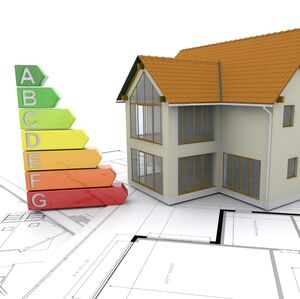18.02.2022

It is no secret that buildings consume a lot of energy and emit a lot of greenhouse gases. Today, some buildings produce their own energy. This is a big step, but there is still a long way to go until the 2030 Sustainable Development Goals are achieved.
What was considered unreal a few decades ago is now a reality: some residential buildings produce their own energy. For Switzerland, this is an important step in the wake of the climate debate and the goals of the Sustainable Development 2030 strategy. Let's take the example of a housing estate in Männedorf, in the canton of Zurich, where 16 families do not pay a single cent for either electricity or heating. This is made possible by the energy self-sufficiency of the housing estate. The energy is produced directly on site.
Greenhouse gases are emitted by the buildings
Despite innovative projects, buildings and industry each still emit a quarter of the total greenhouse gas emissions in Switzerland. Transport accounts for a third, and just under a fifth is generated by agriculture and waste disposal.
Yet there is huge potential for reducing greenhouse gas emissions. More than a million homes have little or no insulation and two-thirds of buildings are heated by fossil fuels or electricity. However, a few structural measures would be enough to reduce this consumption considerably.
How can renovation be financed?
As the public sector has a strong interest in reducing energy consumption due to environmental issues and shortages (electricity and fuel), energy-efficient construction or renovation is supported by the Confederation and the cantons with subsidies. This makes financing much easier.
There are also other alternatives for financing a renovation. These include drawing on an investment or savings account, using pension assets or pledging them.
The three essentials for a green house
Good insulation reduces heat loss. For this, it is necessary to call in a specialist.
Automatic ventilation systems are more efficient. In addition to reducing heating costs, they prevent mould.
Energy-efficient heating is an optimal solution. Oil and gas heaters should be replaced.
How do I know if my house is really energy efficient?
A cantonal energy certificate for buildings (CEBS) can be issued with all the necessary information. In some cantons, this is even compulsory for new buildings or when there is a change of owner.
This certificate will assess the energy efficiency of a house based on the building envelope, technology and electrical installations. Finally, it will show in which energy efficiency category the building in question falls (from A to G).
What was considered unreal a few decades ago is now a reality: some residential buildings produce their own energy. For Switzerland, this is an important step in the wake of the climate debate and the goals of the Sustainable Development 2030 strategy. Let's take the example of a housing estate in Männedorf, in the canton of Zurich, where 16 families do not pay a single cent for either electricity or heating. This is made possible by the energy self-sufficiency of the housing estate. The energy is produced directly on site.
Greenhouse gases are emitted by the buildings
Despite innovative projects, buildings and industry each still emit a quarter of the total greenhouse gas emissions in Switzerland. Transport accounts for a third, and just under a fifth is generated by agriculture and waste disposal.
Yet there is huge potential for reducing greenhouse gas emissions. More than a million homes have little or no insulation and two-thirds of buildings are heated by fossil fuels or electricity. However, a few structural measures would be enough to reduce this consumption considerably.
How can renovation be financed?
As the public sector has a strong interest in reducing energy consumption due to environmental issues and shortages (electricity and fuel), energy-efficient construction or renovation is supported by the Confederation and the cantons with subsidies. This makes financing much easier.
There are also other alternatives for financing a renovation. These include drawing on an investment or savings account, using pension assets or pledging them.
The three essentials for a green house
Good insulation reduces heat loss. For this, it is necessary to call in a specialist.
Automatic ventilation systems are more efficient. In addition to reducing heating costs, they prevent mould.
Energy-efficient heating is an optimal solution. Oil and gas heaters should be replaced.
How do I know if my house is really energy efficient?
A cantonal energy certificate for buildings (CEBS) can be issued with all the necessary information. In some cantons, this is even compulsory for new buildings or when there is a change of owner.
This certificate will assess the energy efficiency of a house based on the building envelope, technology and electrical installations. Finally, it will show in which energy efficiency category the building in question falls (from A to G).


